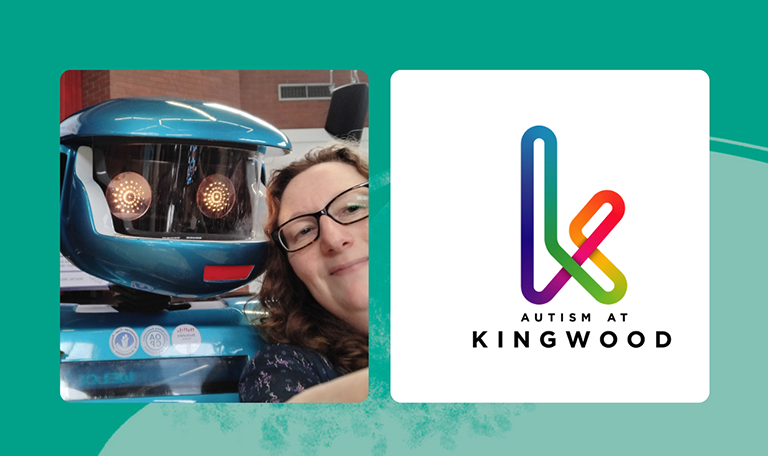From a pushbike to a Lamborghini

Rachel Jannaway, digital lead at Autism at Kingwood, outlines her organisation’s careful planning and considerations as they prepare to roll out the Friends and Family Portal function of their new Digital Social Care Record (DSCR) solution.
At Autism at Kingwood, we support over 100 autistic adults in Berkshire, Oxfordshire and Buckinghamshire to live successfully in their own homes. Our big ambition is to become fully digital.
We’ve transitioned from being almost entirely paper-based to implementing a new digital social care record system, or as I often find myself saying… from a push bike to a Lamborghini, in just over a year. But this is just the beginning.
A key benefit of a digital system is improved collaboration with parents and families. In the long term, this will provide access to digital care plans and real-time information for families and carers. The functionality is already in place - the Friends and Family Portal is easy to use and requires only a login. However, before activating it, we need to carefully assess several factors at both an organisational and individual level.
We need to consider families, deputies, advocates, and commissioners - all of whom have a need for, and a right to, information. However, we must ensure that data is shared responsibly and in the best interests of those we support.
We are currently working with the family of a young man we support who has a co-care model - he spends around four nights a week at home. This family is serving as our guide for proof of concept, as his carers currently write notes in a physical diary to hand over to his parents. We are exploring what his parents truly need, what we can safely and reasonably provide, and how best to structure this information.
Person-centred care is fundamental to everything we do here at Kingwood. So when it comes to setting up the family portal, it is our guiding principle here too. This isn’t just opening up digital care records; it's about integrating the portal in a way that enhances the overall care experience for the people we support and their loved ones.
This means ensuring informed consent. Individuals must fully understand what information will be shared, with whom, and for what purpose. Their explicit consent must be documented. If an individual lacks the capacity to make this decision, we must ensure a best interest meeting has taken place and that the discussion has been recorded to safeguard both the individual and our staff.
We also need to define the type of information to be shared. Will it include general updates, such as photos from a day out or meal preferences? If so, that’s relatively straightforward. However, if it involves more sensitive information, such as personal care or medical details, we must ensure we respect privacy and autonomy. Additionally, we must establish strong security measures, including controlled access, secure logins, and appropriate safeguards for using the app on a family member’s phone.
We will be actively engaging with families and the people we support over the next few months to discuss their preferences, address confidentiality and ensure families understand data protection principles around digital records. Given the diverse needs of the people we support, we need to develop bespoke policies to address these considerations.
The difference between the needs of parents of an 18 year old who is transitioning from school to adult care is vastly different from the needs and expectations of the next of kin for a 60 year old, who might be a sibling, niece or nephew, or even a family friend. Each person, and the people in their lives, need to be considered individually and the system we create must support that. We have the vehicle, but we are carefully planning our route and how to drive it with care. We will continue to refine our approach based on feedback from families and professionals, ensuring that the Friends and Family Portal is a valuable and trusted tool for all those who rely on it.